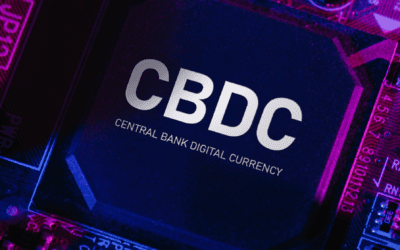Even if you’re not involved in the world of cryptocurrencies, you’ve probably already heard of it. Perhaps you followed Bitcoin’s meteoric rise or watched some of its dips.
Rise or fall, Bitcoin was the most profitable investment of the past decade – perhaps even in world history.
Had you invested in March 2010, on the first available Bitcoin exchange, one bitcoin would have cost $0.003. Slightly over ten years later, even after the Bitcoin crash, you would have earned an eye-watering 286,133,333% return at $8,584. More ROI than any traditional internal investments.
In comparison, the S&P-500 has only averaged a 10.49% annualized return over the last 95 years, and most investors and mutual funds struggle to surpass or even equal it.
Of course, past returns are not indicative of future results, but as Nomad Capitalists look to take ourselves and our capital where we are treated best, it’s certainly worth looking at what the crypto market has to offer.
The crypto gold rush may have ended years ago, but new cryptocurrency opportunities are created every single day.
In this guide, we’ll cover the basics and then look at those opportunities to invest and make money with crypto, as well as the risks involved, the taxes and reports you must file, and the trends and developments you can utilize to make the most of your cryptocurrency investments.
Reasons to Invest in Cryptocurrency
Truly Borderless Digital Currency
As it becomes more mainstream, crypto will allow people to travel the world and purchase goods and services with digital currencies without having to carry physical money and change currencies.
Government Insurance
Holding crypto protects against the whims of political forces, such as the inflationary policies western governments have used over the last decade via QE.
Regain Financial Control
Cryptocurrencies legally enable you to sidestep the “War on Cash” by giving you control over how and where you spend your money, free of government oversight.
What is Cryptocurrency?
Savvy investors should only invest in things that they understand. Otherwise, we might as well just go to Vegas and put it on red. At least gambling it that way is honest and cuts out the middleman.
So, what is cryptocurrency? How does cryptocurrency work?
Cryptocurrency is a digital asset used as a means of exchange. Cryptocurrency does not rely on banks to verify transactions. It is stored in digital wallets and monitored by a peer-to-peer network known as blockchain.
LET US CREATE YOUR HOLISTIC OFFSHORE PLAN
CRYPTOCURRENCY TRANSACTIONS – BLOCKCHAIN TECHNOLOGY
Crypto transactions are then logged into a decentralized finance system called the blockchain ledger – every single cryptocurrency transaction is verifiable by anyone with a copy of this record.
The only way for someone to be able to alter the decentralized system of this cryptocurrency blockchain technology is if they happened to control the majority of the computer’s processing of this information.
The process of running the algorithms that control the blockchain is referred to as the word cryptocurrency mining.
This isn’t just a friendly reference to the way most stores of value like gold and silver are extracted, either. Crypto miners must dig through mountains of cryptocurrency data to “extract” a solution to make sense of the transaction history and get a token as a reward.
And much like mining in the real world, mining the blockchain is very infrastructure-intensive. To do it profitably, crypto miners need the right equipment, including powerful hardware, cooling capabilities to avoid overheating computers, and access to cheap and plentiful electricity.
If a miner is running the software instance that finds the solution to the cryptographic problem underpinning the Blockchain technology, they receive the digital currency as a reward.
The caveat is that the more cryptocurrencies of this type that exist, the more difficult they are to produce and the fewer tokens a miner receives for finding the solution. Because of this, most virtual currencies have a hard limit as to how many can be produced.
The virtual currency Bitcoin, for example, has a hard limit of 21 million producible tokens.
But this caveat actually creates virtual currencies’ greatest advantage over traditional currencies: as such standard cryptocurrencies can avoid hyperinflation. In fact, there is deflationary pressure.
So, despite the lack of a central authority, there is a built-in motivation for miners to run the software, as the more market penetration the crypto has, the more expensive the coin will be as there are fewer and fewer coins for an ever-growing amount of people.
In other words, unlike other currencies that have an inbuilt inflationary pressure, cryptos’ digital currencies are subject to deflationary pressure thanks to firm production limitations.
This is why many have heralded cryptocurrencies as the greatest disruptive financial institutions innovation in centuries. Exactly how this new virtual currency will play out in the long-term is still unknown, but most are certain of one thing: it’s here to stay.
Cryptocurrency payments are getting more common. If you want to spend cryptocurrency at a retailer that doesn’t accept it directly, you can use a cryptocurrency debit card, such as BitPay.
WHAT IS THE BEST CRYPTOCURRENCY?
A lot of people tend to ask “what is the best cryptocurrency to buy?” or “What is the best cryptocurrency to invest in?”
There are over 10,000 cryptocurrencies as of February 2022, and their numbers are soaring. There are bound to be many more on the way.
By market cap, the top cryptocurrency is the five most popular cryptocurrency names as of February 2022 are: Bitcoin (BTC) $730bn, Ethereum (ETH) $327bn, Tether (USDT) $78bn, Binance Coin (BNB) $63bn, and U.S. Dollar Coin (USDC) $50bn.
Bitcoin was the first cryptocurrency and still remains the most important one, but each of the thousands of cryptocurrency options has unique characteristics, functions, challenges, and benefits.
Because cryptocurrency has evolved beyond just being a potential currency alternative, it is rapidly becoming an investment class in its own cryptocurrency right.
For example, startups are using Initial-Coin-Offerings (ICOs) to get around the cryptocurrency regulation that restricts them from seeking funding from the public. These new “coins” are often meant to be exchangeable for future goods and services, though it’s not a requirement.
Broadly speaking, there are two types of cryptocurrencies:
STABLECOINS
Stablecoins are tokens that are pegged to the value of a good, service, or crypto asset. Think of it as an asset that serves the same purpose that the gold standard used to have in relation to the US Dollar.
Its value comes from the fact that it can be redeemed for something else, or as an ETF that functions as digital asset representing a basket of various items.
Ironically, given the volatility of the crypto market, as well as the fact that it might be algorithmically pegged, stablecoins are often not that stable.
The biggest coin within this sector is Ethereum, which is redeemable for computing power.
Because they are pegged to other goods and services, stablecoins do not eliminate the disadvantages of fiat currencies. You can, however, use stablecoins to trade, which can be very profitable.
Stablecoins also allow you to get out of the banking system. You don’t have to rely on banks to verify transactions. So, if you trust fiat currency (since it existed for hundreds of years) but want to get out of the banking system, stablecoins are a good solution.
FREE-FLOAT COINS
Free-float coins are tokens that derive their value primarily from their scarcity, difficulty in mine, and market demand.
The vast majority of the coins within this category obtain their core system architecture from Bitcoin. In a lot of respects, most coins are simply Bitcoin with a coat of paint, given that the Bitcoin software is open-source code and thus freely available.
Unsurprisingly, Bitcoin still remains the biggest coin within this category. But many miners have tried to take the Bitcoin project in a different direction, creating schisms in the currency. Consequently, there have been spin-off coins sharing most of the programming of the original Bitcoin, but with key differences.
An example of this type of schism is the creation of “Bitcoin Cash”, which spun off from the original Bitcoin and shared the same Blockchain until 2017. Bitcoin Cash also branched out into other coins since then as well.
The choice of which coin to invest in is ultimately your own. If you want to go for something with no upper ceiling, then an untethered free-float cryptocurrency is likely your best option.
But if you want more stability while still benefiting from the advantages that this technology brings, then Stablecoins are likely to be your best option.
GET ACTIONABLE TIPS FOR REDUCING TAXES AND BUILDING FREEDOM OVERSEAS
Sign up for our Weekly Rundown packed with hand-picked insights on global citizenship, offshore tax planning, and new places to diversify. Plus, instant alerts on key global shifts.
Is Cryptocurrency a Good Investment?
Is cryptocurrency speculative? Is it an investment? Is it a hedge?
Truth be told, it’s all three in one.
Philosophically speaking, cryptocurrency is a hedge.
We regularly talk about offshore banking and the pivotal role of banks as part of a holistic offshore plan. But there is a war on cash going on in the western world that makes both precious metals and crypto investments an equally important part of any offshore equation.
Both assets are a good way to keep money out of the banking system and well-diversified, not relying on them to verify transactions.
Everything we do at Nomad Capitalist is about creating options and giving yourself an escape hatch whatever the circumstances may be. Crypto assets give you one more way to hedge your investments, so they naturally go together with everything that we do.
In the same vein, I would never recommend that someone invest all their money into digital assets. The point is to diversify, not make a philosophical statement about government control and the future of cryptocurrency or financial institutions.
People who are deep in the crypto space are straddling a divide between the utopia of what crypto could be and the reality of what the world looks like right now. Some focus so much on the utopia that they blind themselves to the realities of the current financial institution’s system.
This has contributed to the speculative nature of cryptocurrency.
And there’s no getting around it: a good portion of the people involved in the cryptocurrency space are there for ideological reasons. The average crypto user is skeptical of governmental authority and they are likely to have a libertarian streak in them.
For that reason, I sympathize with them. But I also believe that the die-hards are stopping cryptocurrency from becoming mainstream as the average person is not interested in the philosophical underpinnings of an asset.
Until current crypto investors can convince the average Joe to use them as a currency instead of speculation vehicles, cryptocurrencies will never become mainstream enough to supplant cash.
At the moment, Bitcoin is not used much in retail transactions, suggesting that investors see it as a store of value rather than a functioning currency.
To understand why, imagine that you had two coins of equal face value, but one is made of gold and one of iron. Naturally, you would use the iron coins first, as they have a lower perceived value – in economics, this is called “Gresham’s Law”.
This is what is happening with Bitcoin. Assuming all things remain equal, the deflationary pressure of cryptocurrency means that if you don’t spend it today, it will be worth more tomorrow.
So, if you have equal amounts of traditional currencies and crypto, you will use the traditional funds over crypto. Until this is resolved, crypto remains a highly speculative environment since it won’t be used as a currency due to its inherently volatile value.
Blockchain technology-based currency is also quite speculative simply because it is so new to the world. It will take some time for it to develop its proper footing and build the necessary infrastructure to enable more people to use it in more ways and in more places.
Because of this, the markets are fairly dispersed and the regulation is not quite there yet. There are, however, plenty of arbitrage and profit opportunities for someone willing to dedicate their time to learning about the subject.
Once volatility starts winding down, cryptocurrency will likely become a more permanent fixture of the economic landscape.
Until then, it will largely be used as a store of value, a means to facilitate trade, and a way to sidestep the nanny-state that wants to control how and where you live your life and spend your money.
I am optimistically cautious about the sector. It shouldn’t be your only financial tool, but because crypto is the most lucrative investment in world history, it’s worth having in any portfolio.
HOW TO INVEST IN CRYPTOCURRENCY
The cryptocurrency market has very little to no regulatory oversight which has led to major controversies over the years. As a rule of thumb, how much you should trust any crypto institution should be directly proportional to how long they have existed without incident.
With that public service announcement out of the way, we’ll move on.
How to buy cryptocurrency?
The most straightforward way to buy any of the thousands of cryptocurrencies out there is through a Centralized Exchange. Think of them as the brokers of the crypto world, where they both execute and store cryptocurrency on your behalf.
While this is the easiest way to buy cryptocurrency, it brings with it several complications as the Bitcoin network and other cryptocurrencies grow. Especially that crypto purchases with credit cards are considered risky.
For starters, many in the crypto world are looking to improve the currency’s reputation through increased regulation. Already, many Centralized Crypto Exchanges impose heavy Know-Your-Customer (KYC) regulations, especially for Americans.
It’s not uncommon for these Centralized Cryptocurrency Exchanges to ask for your address, net worth, the reason for investing in crypto, and even your Social Security number. On top of that, this data is often processed by third parties that may not have the highest safety standards.
So, while this is the most straightforward way of getting into the crypto space, it’s not the most advisable.
If you’re more knowledgeable on the subject of crypto, it may be time to graduate to safer alternatives. If you are concerned about privacy and safety, decentralized cryptocurrency exchanges are the way to go, even if they are a bit more technical.
On these platforms, you often don’t even need an email to get started and the whole system is peer-to-peer, meaning that there are no intermediaries whatsoever. The only record of your transaction is what appears on the blockchain once the transaction takes place.
The main caveat with the decentralized platforms is that they are a fairly illiquid market. If you’re buying in larger amounts, it may be difficult to find someone with the amount of crypto that you want to buy at the cryptocurrency price you want or vice versa.
However you obtain your cryptocurrency, you are entirely responsible for the safety of your assets. You must have your wits about you to conduct the transactions and store your cryptocurrency.
In fact, before you ever buy crypto, you need to learn how to safely store it offline. Offline crypto storage is the epitome of why you should be investing in crypto in the first place.
It gives you full custodianship.
Storing offline does not mean that you are taking your coins off the blockchain, just the key that grants you access to those coins.
The least secure means of storing your cryptocurrency offline is with a “paper wallet”, which is literally a single key (a long string of alphanumeric symbols that grant you access to your actual wallet) printed out on a piece of paper.
If you lose access to this piece of paper for any number of reasons, there is no way of recovering it. And once you use this “password”, consider it spent, as the information has been used online.
A better option is to store your crypto keys in a “hardware wallet”, which can take the form of something as simple as a USB with a certain application or as complex as a bespoke machine with built-in security features and ciphers.
Once you store the key in your hardware wallet, you can disconnect it from the internet and even your computer, completely separating your keys from potential hackers.
LET US CREATE YOUR
HOLISTIC OFFSHORE PLAN
“Bitcoin was the most profitable investment of the past decade – perhaps even in world history.”
How to Make
Money with Crypto
If you’re not the type of person who is interested in running a crypto-centric business but would still like to make money from this emerging industry, then there are three main ways you can do so.
(That said, even if you aren’t going to start an exchange or lending platform, there are worthwhile reasons for dealing with cryptocurrency from within a corporate structure.)
1. CRYPTOCURRENCY MINING
A decade ago, it was possible to use your laptop to solve cryptographic problems to update the blockchain. But since then, the industry has become far more complex.
These days, people are running server farms in various countries like Georgia, Russia, and China where they can access cheap electricity, cheap hardware, and low temperatures that make cooling the infrastructure far easier than elsewhere.
Unless you’re willing to sink considerable capital to compete with these sophisticated operations, chances are that the coins with large market caps and well-known names are off the table.
However, there are thousands of alternatives out there. It’s rare for the entity that began a revolution to be the one that finishes it.
Knowing this, perhaps it makes sense to get in on the action of some of the lesser-known alternatives with interesting potential. Cryptocurrency mining is certainly a great way to get crypto without going through the KYC process.
In all likelihood, you won’t be able to mimic the 286,133,333% initial growth of Bitcoin, but even obtaining a fraction of a percent of that return would be very lucrative.
2. CRYPTOCURRENCY EXCHANGES & TRADE
With a market as volatile, dispersed, and active as cryptocurrency, there are plenty of opportunities to make money via arbitrage.
As with normal trading though, it’s worth remembering that there are fees incurred, and in some places, you might be taxed per transaction. Living in the wrong country, or having the wrong passport has the potential to transform profitable trades into unprofitable ones.
Having one of the best passports for crypto investors is essential.
Before you even start cryptocurrency trading, I would advise you to see what the regulations are in your jurisdiction, as well as what the fees are for the trading platforms that you are using.
3. INVESTING IN CRYPTOCURRENCY
The markets will go up, down, over, and sideways, but as long as there is interest in the various cryptocurrencies, deflationary pressure is built onto them which should make them appreciate in value as time goes on.
But because of the inherent volatility of the sector, you should be diligent and stick with your plans. Don’t be scared off by momentary fluctuations, both good and bad.
Two and a half years ago, the cryptocurrency Bitcoin price almost reached $20,000 but it proved to be too high of a psychological barrier to overcome. Instead of crashing through this milestone, the price collapsed by 80%.
Had you invested at the low point of the fall though, you would have almost doubled your investment. And as we’ve mentioned before, had you invested a decade before you would have still earned a 286,133,333% ROI, despite the 80% loss.
If you are thinking of investing, consider doing so in the long run.
Bitcoin has been declared dead hundreds of times, but it recovers every time. There will always be naysayers. You need to have a strong stomach to get into the world of cryptocurrency investment, but more importantly, you need to have a plan and follow through on it.
Some people opt for a dollar-cost-averaging strategy and invest a set amount on a weekly or monthly basis, no matter whether the markets are low or high.
It’s very difficult, if not impossible, to time the market, especially with something as variable as crypto. By keeping a long-term perspective, you’ll save yourself the psychological turmoil of every up and down.
In summary, your three main options to make money in crypto are to mine, trade, or invest, but they are far from being the only opportunities. In fact, the future holds very interesting prospects.
Reporting Taxes on Cryptocurrency
The die-hard cryptocurrency fanatic will say that the entire purpose of this technology is to evade government scrutiny and taxes. But I disagree.
I am not interested in being one of those people perpetually living in fear because I did something illegal and have to forever look over my shoulder.
Especially not when I can go where I am treated best and avoid crypto-related taxes entirely.
While a good portion of countries are on the warpath against crypto because they see it as a means for criminals to evade detection (or as a direct competitor to their national currency), other countries are embracing the technology.
Just to list a few examples, these are some of the countries that won’t tax you on your cryptocurrency earnings:
- Portugal won’t tax crypto profits if you are an individual and not a corporate entity;
- Germany won’t charge taxes if profits are below €600 and, more importantly, if the coins were held for over a year;
- Singapore is tax-free for individuals and long-term holders depending on how you use the currency; and
- Belarus won’t tax profits from mining, trading, ICOs, and capital gains until January 1, 2023.
COUNTRIES’ PROGRESSIVE TAKE ON CRYPTO
There are also countries that have created other incentives for crypto investors to set up their operations within their jurisdictions or even pay for immigration services with Bitcoin.
Here’s a quick summary:
- El Salvador adopted Bitcoin as the country’s legal tender in its world-first adoption on the 7th of September 2021.
- Malta has created a regulatory body specifically for crypto startups. They also offer low net corporate rates and EU banking options
- Liechtenstein does not necessarily offer financial incentives for crypto investors, but the government is very crypto-friendly and the banks there regularly deal in crypto for their clients and have even advised several ICOs.
- Bermuda has passed several laws to facilitate crypto investment in an effort to position the island as a crypto incubator. The new legislation allows for a separate class of banking licenses for fintech and enables fast approval of ICOs.
- Switzerland adopted pro-crypto regulations long before almost any other country. The low-tax canton of Zug has already been dubbed “Crypto Valley” and the country as a whole is aiming to earn the title of “Crypto Nation.”
- Vanuatu was the first country to accept Bitcoin payment for their citizenship by investment.
- Following Vanuatu’s example, Antigua and Barbuda now accepts Bitcoin for their citizenship by investment program.
- Georgia’s government was one of the first to adopt blockchain technology.
These lesser-known, less powerful countries have been looking for an edge and crypto has given them that – or at least they have enacted crypto-friendly policies in pursuit of that edge.
Some have specifically stated that they will not tax crypto investors. Others merely seem crypto-friendly because they have not regulated the industry yet. With no framework in place, crypto gains in many of these countries are technically tax-free (for now).
But other countries want to make money off of cryptocurrencies, whether through taxes, fines, or fees. So, while some countries have gotten on board with tax-friendly crypto regulations, countries like the US have created so many limiting regulations that their citizens are at a disadvantage as crypto investors.
THE UNITED STATES AND CRYPTO
Unfortunately, being an American is a serious hindrance when you are a crypto investor.
US citizens will need to pay taxes and report on their crypto earnings no matter where they live in the world. And because of these and other regulations, they are often locked out of certain investment opportunities, including crypto exchanges and ICOs.
If you are a US citizen and you are investing in crypto, you must ensure that you are following all reporting laws and paying all taxes. Here at Nomad Capitalist, we never advise anyone to hide their money from the government.
Under no circumstance do we encourage tax dodging, especially when there are perfectly legal ways that your crypto-related profits could be tax-free.
The key is to focus on those off-the-radar places that want that edge – that want you. They have become havens for crypto investors by facilitating the growth of the industry via crypto-friendly legislation.
If you have any specific concerns about your situation, we would be happy to help you with a crypto-friendly strategy.
RISKS WITH CRYPTO
No investment is beyond risk, but crypto is especially speculative. It’s one of the few investments with the potential to be worthless.
I am not saying this about the industry as a whole. But if the barrier to entry to have an ICO (and thus your own coin) is relatively low thanks to the open-source system architecture, there may be many cryptos out there that never achieve enough interest to survive.
The baseline value of a line of code that nobody wants is zero.
That’s worth considering when deciding whether or not to jump into a specific coin.
Furthermore, because cryptocurrency is nothing short of a revolution in the financial world, it is also at the edge of the known parameters of the legal and technological space. This carries with it its own set of concerns.
We have already seen budding cryptocurrencies get destroyed by hostile regulatory bodies – as happened with Facebook’s Libra.
There are already some countries that outright ban any activity relating to cryptocurrency (Algeria, Bolivia, Morocco, Nepal, Pakistan, and Vietnam). There is no reason to assume that this type of aggressive attitude towards this emerging technology couldn’t become more widespread.
Imagine that you invest in these assets and overnight you are branded as a criminal. This is why it’s so important for people in the cryptocurrency space to diversify and have other alternatives so that they do not depend on a single geographic location or investment.
Simply put, there are risks that you can never fully insure against.
A portion of the value of cryptocurrencies is directly derived from how capital-intensive the coins are to produce. But if there were a substantial and rapid increase in computational capacity, the very underpinnings of crypto would be broken.
Quantum computing is on the horizon. If this technology is mastered, cryptography as we know it could cease to be relevant. That’s the risk of banking everything on technology. It’s always changing.
At a certain technological level, quantum computers could solve the cryptographic blocks underpinning the blockchain near instantaneously, enabling faster coin production than the market could handle, crashing the value, and potentially stopping people from being interested in them at all.
There are many more risks, but these would be the chief things that could erode the value of your holdings in the foreseeable future.
LET US CREATE YOUR
HOLISTIC OFFSHORE PLAN
“Cryptocurrency should form a part of any well-diversified portfolio… at the end of the day, make it a financial decision, not a philosophical one.”
Just One Tool of Many
Cryptocurrency is among the most exciting developments in the financial world in years, possibly even in centuries.
The industry has the potential to change how economies and markets work, But this is not a given.
Despite its potential, there is a lot that can happen in the interim that may upend the rosy future.
So, some caution is certainly warranted. Especially given that nobody knows which one of the thousands of available coins will be the one that ultimately wins the revolution and becomes the accepted medium of exchange.
But, as it has proven to be the most profitable investment in human history and it still has a lot of room to develop and grow, it makes sense to consider it a part of a healthy portfolio.
Given its wild fluctuations on a day-to-day basis, I would not advise making it your primary holding, as it feels a lot like playing Russian Roulette at times. But it should form a part of any well-diversified portfolio.
ADOPT MORE OFFSHORE STRATEGIES
If you’re new to the scene, know that it’s never too late to get started.
Just be sure you know why you are investing.
Are you losing faith in fiat currency?
Do you mistrust the banking system?
Are you looking to trade?
Do you want an investment that is censorship-resistant?
Do you prefer peer-to-peer transactions?
Perhaps you like the borderless nature of the currency and how it can facilitate an international lifestyle.
Whatever your motivation, the value is very apparent.
But at the end of the day, make it a financial decision, not a philosophical one. Have an early adapter mindset, but don’t get attached to a movement.
Bitcoin and other cryptocurrencies are tools to create a life of greater freedom and prosperity, but they are not the only ones. If you want to experience true freedom, you need to use all the tools in your toolbox to create a holistic and diversified plan.
To get help incorporating crypto into your offshore plan or adopting more offshore strategies into your current crypto endeavors, feel free to reach out to our team. We do this stuff every day to help folks like you go where they’re treated best.
READ MORE ABOUT CRYPTOCURRENCY
Top Countries for Crypto and Bitcoin Citizenship and Residency in 2025
If you're a successful entrepreneur living abroad, you already know that crypto is rewriting the...
Top Crypto Tax Free Countries in 2025
Crypto has come a long way. It may have started out on the fringes of finance, but in 2025, it's...
Understanding the Legal Framework for CBDCs
Central bank digital currency (CBDC) is a digital form of fiat currency which is pegged to the...
The Impact of CBDCs on Cross-Border Payments and Remittances
Cross-border payments are a vital function of the global financial system. The Bank of England...
The Future of Digital Money: CBDCs versus Decentralized Cryptocurrencies
With the use of cash for everyday purchases declining and electronic payments the norm for many,...
Germany Crypto Tax Guide in 2025
Cryptocurrencies became very popular in Germany. Currently it’s estimated that 5.8% of Germans own...















